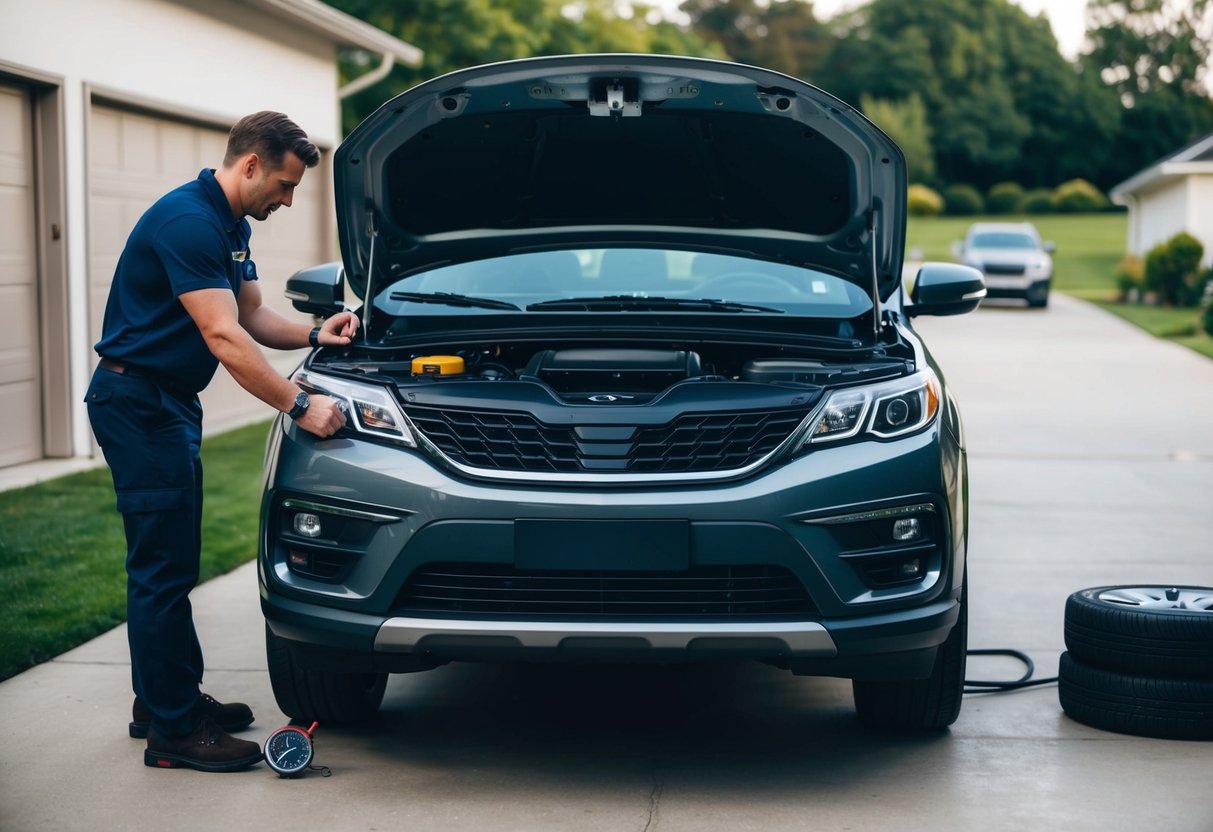The Ultimate Guide to Safely Towing with Your Vehicle: Essentials for Every Owner
The Essential Towing Equipment
When towing, having the right equipment is crucial for safety and efficiency. Proper towing involves selecting suitable trailer hitches, using safety chains appropriately, and considering aftermarket braking systems to enhance control and safety.
Choosing the Right Trailer Hitch
Selecting the correct trailer hitch is fundamental for towing. Different vehicles require specific types of hitches based on their towing capacity. The trailer hitch ball size must match the trailer’s coupler for a secure fit. Hitch classes, ranging from I to V, determine the weight they can carry, which is vital for ensuring safety. For instance, Class I hitches are suitable for small loads, while Class V can handle heavy-duty towing. It’s essential to consult the vehicle’s manual to determine the appropriate hitch class.
Harnessing Safety Chains Correctly
Safety chains add an extra layer of security by acting as a backup connection between the tow vehicle and the trailer. They must be crisscrossed under the trailer’s tongue, which helps keep it off the ground if the hitch fails. Proper chain length is crucial, as they should be long enough for turning but not so long that they drag on the road. Regular inspection of the chains for wear and tear ensures longevity and reliability. It’s important to connect the chains to designated anchor points on the vehicle and trailer, preventing accidental disconnection.
Benefits of an Aftermarket Braking System
An aftermarket braking system can significantly enhance towing safety. It synchronizes the brakes between the towing vehicle and the trailer, providing smoother and more effective stops. This system is particularly beneficial when towing heavy loads, as it reduces strain on the vehicle’s brakes and improves overall control. Various options, such as electric or hydraulic over electric brakes, cater to different towing needs. Installation requires expert handling to ensure compatibility and functionality. Investing in a quality braking system not only supports safety but can also prolong the life of the vehicle’s braking components.
Pre-Tow Vehicle Inspection

A thorough vehicle inspection before towing is crucial. It involves checking tire pressure, assessing the brake system, and making sure all lights and signals are functioning properly. Attention to these areas ensures safer towing experiences and prolongs vehicle life.
Checking Tire Pressure and Condition
Proper tire pressure is fundamental for safe towing. An owner’s manual will usually specify the ideal pressure levels for both the vehicle and any trailer tires. Under-inflated tires can lead to decreased fuel efficiency and increased wear, while over-inflated tires might result in a rougher ride and possible blowouts.
Checking tread depth is equally important. Treads should be free from embedded debris or uneven wear patterns, which could suggest alignment or suspension issues. Finally, examining tires for visible damage like cuts, punctures, or sidewall bulges is essential to avoid unexpected failures on the road.
Assessing Your Vehicle’s Brakes
Brakes are one of the most vital components when it comes to towing. A vehicle’s braking ability is tested more when towing a load, and worn-out brakes can result in longer stopping distances or loss of control. Inspection should start with the brake pads and rotors to ensure there isn’t excessive wear.
Brand-new pads are usually thicker, while worn pads need replacement. Rotors should be smooth without grooves or signs of rust. Brake fluid levels should be checked, ensuring there is no leakage, which might indicate issues in the hydraulic system. Keeping brakes in optimal condition is essential for safety during towing operations.
Ensuring All Lights and Signals Work
Functioning lights and signals are necessary for communication with other drivers on the road. Before towing, it’s important to verify that headlights, brake lights, and turn signals are operational on both the vehicle and trailer.
The electrical connections between the towing vehicle and trailer must be secure, without frayed wires or loose connections. A helper can be useful to confirm each light functions correctly while the driver operates the controls. Any malfunctioning lights should be addressed promptly by replacing bulbs or fixing faulty wiring.



